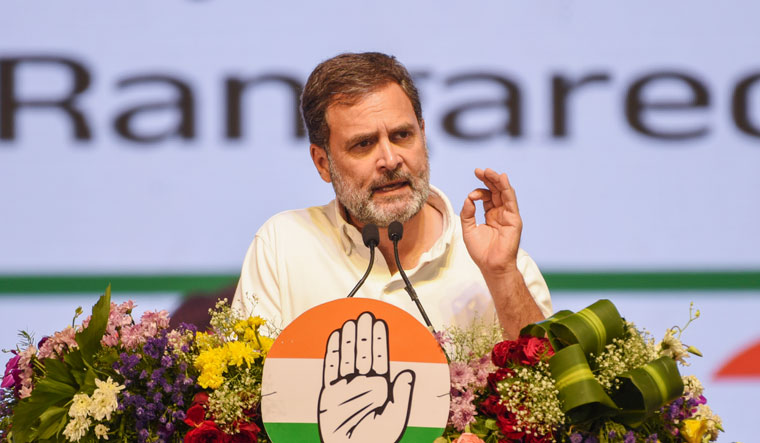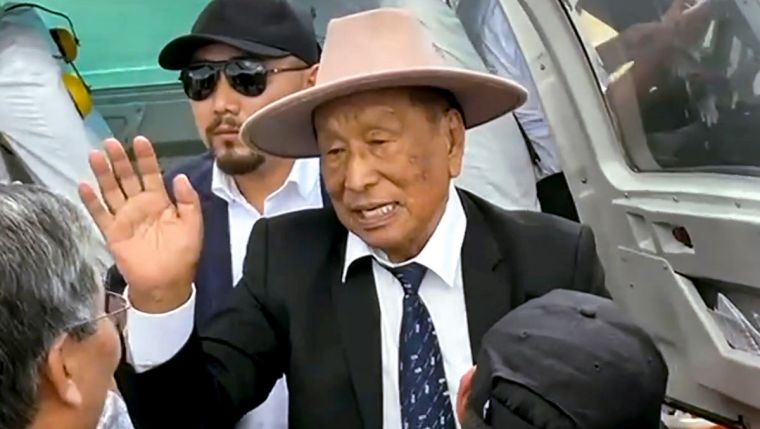In a political maneuver that has sent ripples through the Indian political landscape, Rahul Gandhi, scion of the Nehru-Gandhi dynasty and prominent leader of the Indian National Congress (INC), has announced his decision to contest from Rae Bareli in the upcoming elections. This move marks a departure from tradition, as Rae Bareli has long been the stronghold of his mother, Sonia Gandhi. Concurrently, the Congress party has nominated Kishori Lal Sharma to contest from the neighboring constituency of Amethi, a seat that Rahul Gandhi had previously represented. This strategic realignment has sparked intense speculation and debate within political circles, with analysts dissecting its potential implications for both the Congress party and the broader electoral landscape.
The decision for Rahul Gandhi to contest from Rae Bareli underscores a calculated shift in the Congress party’s electoral strategy. By fielding Rahul in Rae Bareli, the party aims to consolidate its grip on this crucial constituency while simultaneously shoring up support in neighboring regions. Rae Bareli holds immense symbolic significance for the Congress, having served as the political bastion of the Gandhi family for decades. Rahul’s decision to contest from this constituency not only reaffirms the party’s commitment to its traditional strongholds but also seeks to energize its voter base ahead of the elections.
Moreover, Rahul Gandhi’s decision to contest from Rae Bareli can be interpreted as a strategic maneuver to counter the growing influence of rival political factions in the region. With the Bharatiya Janata Party (BJP) making significant inroads into traditional Congress strongholds in recent years, Rahul’s presence in Rae Bareli is perceived as a preemptive strike to stem the tide of defections and consolidate the party’s support base. Additionally, by personally leading the charge in Rae Bareli, Rahul aims to invigorate party workers and galvanize grassroots support, crucial elements in the electoral battle ahead.
Simultaneously, the nomination of Kishori Lal Sharma to contest from Amethi represents a calculated gamble by the Congress party. Amethi, once considered a Congress bastion, witnessed a seismic political shift in the previous elections when Rahul Gandhi suffered a shock defeat at the hands of BJP candidate Smriti Irani. The decision to field Sharma, a seasoned politician with deep roots in the region, reflects the party’s determination to reclaim lost ground in Amethi. Sharma’s candidacy is seen as a strategic move to revitalize the party’s organizational machinery in the constituency and reconnect with disenchanted voters.
Furthermore, the decision to swap constituencies between Rahul Gandhi and Kishori Lal Sharma underscores the Congress party’s adaptability in the face of evolving political dynamics. By reallocating resources and recalibrating its electoral strategy, the party aims to maximize its electoral prospects in both Rae Bareli and Amethi. This pragmatic approach underscores the Congress leadership’s recognition of the need for agility and innovation in navigating the complex terrain of Indian politics.
However, Rahul Gandhi’s decision to contest from Rae Bareli has not been without controversy. Critics argue that his choice to abandon Amethi, a constituency long associated with the Gandhi family, represents a tacit admission of defeat and a betrayal of the trust reposed in him by the electorate. Moreover, skeptics question the wisdom of fielding Kishori Lal Sharma, a relatively unknown figure, in a high-stakes electoral battle against formidable opponents. They argue that Sharma’s lack of name recognition and grassroots support could undermine the Congress party’s prospects in Amethi.
Nevertheless, supporters of Rahul Gandhi contend that his decision to contest from Rae Bareli demonstrates his commitment to the party’s larger electoral goals. They argue that by focusing on Rae Bareli, Rahul aims to consolidate the Congress party’s position in a key stronghold and provide a rallying point for party workers across the region. Moreover, they believe that Kishori Lal Sharma’s nomination reflects the party’s confidence in his ability to connect with voters and deliver a resounding victory in Amethi.
In conclusion, Rahul Gandhi’s decision to contest from Rae Bareli and the Congress party’s nomination of Kishori Lal Sharma for Amethi represent a strategic realignment aimed at bolstering the party’s electoral prospects in Uttar Pradesh. By recalibrating its electoral strategy and reallocating resources, the Congress party seeks to counter the growing influence of rival political factions and reclaim lost ground in key constituencies. However, the success of these maneuvers hinges on the party’s ability to mobilize grassroots support, connect with voters, and navigate the intricacies of electoral politics in one of India’s most politically significant states. As the countdown to the elections begins, all eyes will be on Rae Bareli and Amethi, where the fate of the Congress party’s electoral fortunes hangs in the balance.




































